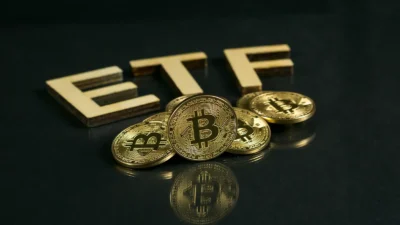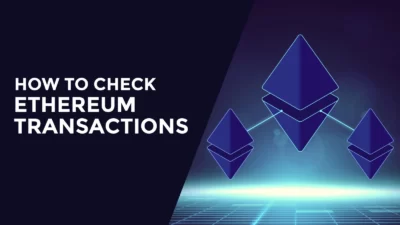Table of Contents
Toggle- A brief Introduction to cryptocurrency
- What is Blockchain, and what does it do?
- Benefits of Blockchain
- Is Blockchain part of the cryptocurrency
- The main difference between the two
- The bitcoin origin story
- The volatility and complications
- Innovative apps for blockchain
- The future of cryptocurrency and blockchain
- Why you probably don’t need blockchain?
The blockchain is a database that allows for secure and transparent transactions that cannot be tampered with. Cryptocurrency is an asset that uses blockchain technology to facilitate safe and anonymous transactions. In this blog, we will find out the relationship between blockchain and cryptocurrency and discuss the benefits of each.
A brief Introduction to cryptocurrency
Cryptocurrencies are decentralized, meaning they are not subject to government or financial institution control. This makes them attractive to many people who distrust centralized institutions. Cryptocurrencies are also pseudonymous, meaning that transactions are not linked to real-world identities. This anonymity has made cryptocurrency a popular tool for conducting illegal activities online.
What is Blockchain, and what does it do?
Blockchain technology is a method of recording and verifying transactions without the need for a third party. It does this by creating a permanent, unchangeable record of each transaction (the “blockchain”), which is then shared between all members of the network. This means that there is no need for a financial institution such as a bank to verify and approve transactions, as the blockchain does this automatically.
Benefits of Blockchain
Blockchain technology also has benefits such as increased security and transparency, as well as reduced costs and delays associated with traditional methods of verification.
Security
Blockchain technology provides a high level of security because it is decentralized and tamper-proof. When data is stored on a blockchain, it is stored in many different places across the network, which makes it difficult to hack or alter. And because the network is distributed, there is no one point of failure that could be exploited by hackers.
Transparency
The transparency of blockchain is a key benefit that has allowed it to become so popular. Every transaction that is made on the blockchain is publicly viewable, which allows for greater accountability and trust in the system. This transparency also helps to prevent fraud and corruption.
Reduces cost
There are a few key benefits of reduced costs that come with the implementation of blockchain technology. Some of these benefits include:
1) Reduced administrative costs
2) Reduced fraud and corruption
3) Reduced cost of intermediaries
4) Faster, more secure payment systems
Is Blockchain part of the cryptocurrency
Yes, blockchain is the technology that cryptocurrencies like Bitcoin are built on. Blockchain is a distributed database that allows for secure, transparent, and tamper-proof transactions without the need for a third party like a bank. Transactions are verified by miners who are rewarded with cryptocurrency for their work.
Why is Blockchain important for cryptocurrency?
Blockchain is important for cryptocurrency because it allows users to have a secure and tamper-proof record of all transactions on the network. This prevents people from spending the same cryptocurrency more than once, and also makes it difficult for attackers to fraudulently spend cryptocurrencies.
Additionally, blockchain technology is able to process transactions much faster than traditional banking systems, making it ideal for use in digital currencies.
Why is cryptocurrency called blockchain?
Blockchain is the technology that underpins cryptocurrencies like Bitcoin. Cryptocurrencies are built on a blockchain because it’s a secure way to ensure that transactions are verified and recorded publicly.
Blockchain is a distributed database that allows for secure and transparent recording of transactions. Transactions are grouped into “blocks” that are verified by multiple parties before they’re added to the blockchain. This verification process ensures that the blocks are valid and cannot be altered without being detected.
Cryptocurrencies like Bitcoin use blockchain technology because it’s a secure way to verify and record transactions without relying on a central authority like a bank or government. This makes Bitcoin less vulnerable to fraud or censorship.
Can blockchain work without cryptocurrency?
Yes, blockchain technology can work without cryptocurrency. However, the use of cryptocurrency is what has allowed blockchain technology to be implemented in a number of different industries and applications.

Cryptocurrency is what allows users to make and receive payments securely, without the need for a third party. It also allows for the decentralized storage of data, which is why it is often used in conjunction with blockchain technology.
Do all cryptocurrency use blockchain?
Most cryptocurrencies use blockchain, but not all.
A blockchain is essentially a public ledger of all transactions that have ever taken place in a given cryptocurrency network. It’s this public ledger that allows users to verify that the transactions they are seeing are actually taking place on the network and have not been altered in any way.
The main difference between the two
The main difference between cryptocurrency and blockchain is that cryptocurrency is a subset of blockchain technology, while blockchain technology can be used for a variety of purposes beyond cryptocurrencies.
Cryptocurrencies like Bitcoin are digital currencies that use cryptography to secure their transactions and to control the process to create new units. Blockchain is the technology underlying cryptocurrencies.
Blockchain technology can be used for a wide variety of applications beyond cryptocurrencies, including tracking ownership of assets, recording votes in elections, and securing data from cyberattacks.
The bitcoin origin story
Bitcoin was created by Satoshi Nakamoto 14 years ago. It is a digital asset and a payment system. Bitcoin is unique in that there are a finite number of them. They are created as a reward for a process known as mining. They can be exchanged for other currencies, products, and services. Now anyone can buy bitcoin in Dubai with cash and store it in a crypto wallet.
The volatility and complications
The volatility and complications of blockchain and cryptocurrency are due to the fact that they are still in their infancy. The technology is still being developed, so there are bound to be some hiccups along the way. That said, there is a lot of potential for these technologies to revolutionize the way we do business online. As more people adopt them and more businesses start using them, the volatility and complications will likely subside. For now, it’s important to be aware of the risks involved in investing in these technologies, but also remember that there is a lot of potential for a payoff down the road.
Innovative apps for blockchain
Finance
The blockchain is a revolutionary new way of storing and securing data. It’s a distributed database that allows for secure, transparent, and tamper-proof transactions. This makes it the perfect tool for recording financial transactions and
The finance industry has been one of the early adopters of blockchain technology. A number of banks and other financial institutions are currently experimenting with the technology to see how they can use it to streamline their operations. Some of the potential applications include:
1) Streamlined clearance and settlement processes
2) Improved fraud detection and prevention
3) Enhanced customer experience through improved customer service and faster transactions
Smart contracts
Blockchain is a technology that allows for the secure, transparent, and tamper-proof recording of transactions. Smart contracts are basically computer protocols that enforce, verify, or facilitate the performance of a contract.
Together, blockchain and smart contracts offer a way to create trust where none exists. They provide a way to exchange goods and services without having to rely on third-party intermediaries such as banks, lawyers, or notaries. This can reduce costs and save time. And because the blockchain is transparent and tamper-proof, it can help ensure the integrity of contractual agreements.
Cyber security
Cyber security is a critical aspect of our lives, and blockchain technology has the potential to make it even more secure. Blockchain is a distributed database that allows for secure, transparent, and irrefutable transactions. This makes it the perfect technology for protecting sensitive data and ensuring the security of cyberspace.
Blockchain can be used to create tamper-proof logs of all activities on a system, which can help to identify and track any malicious or unauthorized behaviour. It can also be used to store cryptographic keys and other sensitive data in a secure manner. And because blockchain is decentralized, it can be used to create networks of trust that are immune to attack or corruption.v
Health records
Blockchain has the potential to revolutionize how health data is stored and accessed. By creating a secure, tamper-proof system for tracking access and changes to health records, blockchain could make it easier for patients to share their data with researchers and healthcare providers. This could improve our understanding of the disease, lead to new treatments, and help doctors provide more accurate diagnoses.
Blockchain technology can also be used to create a “smart contract” system for verifying patient consent. Under this system, patients would be able to grant specific permissions for their data to be accessed by different parties (e.g., doctors, researchers, insurers) as needed.
Non-fungible tokens
Nonfungible tokens offer a new way of handling digital assets. They are different from traditional fungible tokens because each one is unique. This makes them ideal for representing digital collectables, rights, or privileges.
By using blockchain technology, it’s possible to create a system in which nonfungible tokens can be issued and traded securely. This could revolutionize the way digital assets are handled online. It could also pave the way for new types of applications and services that wouldn’t be possible with traditional tokens.
Voting
Blockchain technology is being used to create innovative voting apps. For example, one app called Follow My Vote is using blockchain technology to create a secure, transparent, and tamper-proof voting system.
The app uses blockchain to record votes, which allows voters to verify that their vote was counted and that it was not changed or tampered with. The app also uses cryptography to protect voter privacy. And because the blockchain is decentralized, it can’t be hacked or manipulated. This makes the voting process more secure and trustworthy than traditional voting systems.
The future of cryptocurrency and blockchain
The future of cryptocurrency and blockchain is very bright. Blockchain technology is already being used in a number of different industries, and it has the potential to completely revolutionize the way we do business.

Cryptocurrency is also becoming more and more popular, and it is likely that it will eventually replace traditional currency altogether. With Bitcoin and other cryptocurrencies, there is no need for a centralized authority such as a bank or government to control the money supply. This could potentially have a huge impact on the global economy.
Why you probably don’t need blockchain?
There are a few reasons why you might not need blockchain. Here are a few of the most common reasons:
1) You don’t need a distributed, secure database: Blockchain is often touted as a way to create a secure, distributed database. But if you don’t need a secure, distributed database, then you don’t need blockchain. There are many other technologies that can help you create a secure database, such as RAID or Amazon Web Services.
2) Your use case doesn’t require decentralization: Many people think that blockchain is necessary for decentralized applications (dApps). But if your use case doesn’t require decentralization, then you don’t need blockchain.







